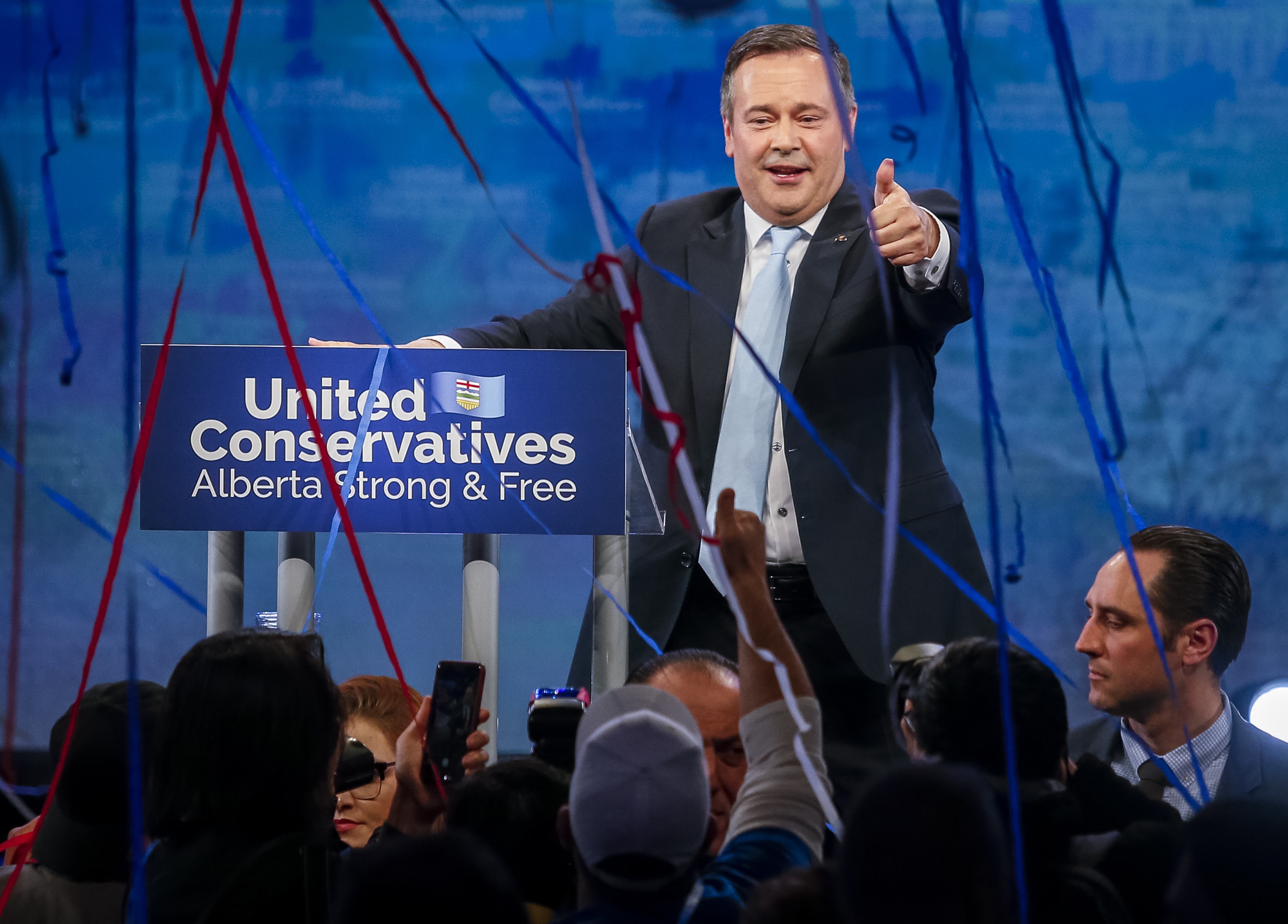Canada Is Going Conservative

Credit to Author: Hilary Beaumont| Date: Wed, 17 Apr 2019 17:27:21 +0000
Justin Trudeau has got to be sweating a little.
Tuesday night, Alberta voters elected United Conservative Party leader Jason Kenney in a landslide victory, handing him a majority government.
It’s true that Alberta has a long history of Progressive Conservative (PC) governments stretching back to 1971, and the shift toward the centre with Rachel Notley’s NDP win in 2015 was an exception to the rule. But Kenney’s victory continues a recent trend of voters electing conservative majorities at the provincial level, ahead of Canada’s fall federal election.
In June 2018, Doug Ford led the Ontario PC party to a majority victory, kicking out Liberal leader Kathleen Wynne. In October 2018, voters elected Quebec Premier Francois Legault of the right-leaning Coalition Avenir, handing him a majority and unseating the Quebec Liberals.
Looking at Canadian provinces now, six out of ten have conservative governments, five of them majorities.
Manitoba has a PC leader, Brian Pallister, elected in April 2016, ending almost 17 years of NDP rule. Pallister won one of the largest majority governments in the province’s history with 40 seats. Also in April 2016, Saskatchewan elected the right-leaning Saskatchewan Party in its third majority government.
New Brunswick elected a PC government in September 2018, but did not give premier Blaine Higgs a majority.
In his victory speech Tuesday night, Kenney gave a shout out to conservative premiers he sees as allies: “Thank you especially to my friends the Premiers Moe of Saskatchewan, Pallister of Manitoba, Ford of Ontario, Higgs of New Brunswick, and McLeod of the North West Territories. I look forward to deepening our work together to create jobs and prosperity.”
Only the east and west coasts remain with centre or left-leaning governments.
Nova Scotia has a Liberal government, as does Newfoundland and Labrador. British Columbia has a mixed government, with three Green seats supporting the BC NDP in a minority government.
PEI has had a Liberal government since 2015, but will return to the polls next week, and there’s potential for voters to elect the first-ever Green Party provincial government in Canadian history.
Keep in mind that the three east coast provinces that currently have centre or left-leaning governments, don’t have much sway in federal elections. Nor do the territorial governments, of which the Yukon has a Liberal government, the Northwest Territories premier is an independent, and the premier of Nunavut has no party affiliation.
So what does this mean for Trudeau?
Apart from Kenney’s vow to “stand up to Trudeau,” Canada’s prime minister is facing a tough election this fall.
Inside Canada, Trudeau is facing criticism from both the right and the left. He is viewed by many as an elitist. And First Nations leaders and activists have accused him of reneging on his promise of reconciliation and nation-to-nation dialogue. It doesn’t help that he hasn’t been able to build the Trans Mountain pipeline expansion from Alberta to the BC coast, a project that Albertans say is desperately needed to get a good price for their landlocked oil. In his speech Tuesday night, Kenney fired a shot at Trudeau, saying the federal government has “made a bad situation worse” by failing to build pipelines. And Trudeau’s plan to force provinces to adopt a carbon tax has proved wildly unpopular in provinces with PC leaders. Some are even challenging it in court.
And the SNC-Lavalin scandal did not help Trudeau’s image at all.
A Globe and Mail investigation alleged that the Prime Minister’s Office, afraid of job losses ahead of the fall election, had repeatedly pressured Attorney General Jody Wilson-Raybould to pursue a deferred prosecution agreement with SNC-Lavalin, a mammoth Quebec construction company accused of bribing Libyan officials. Trudeau has said the Globe story was false, but Wilson-Raybould testified that she was inappropriately pressured to step in and stop SNC-Lavalin’s prosecution. If convicted, the company would have been barred from bidding on federal contracts for 10 years.
Following the SNC-Lavalin scandal, an Ipsos poll for Global News found that among Canadians, Trudeau’s approval rating is now lower than Trump’s. And a Leger poll conducted for the Canadian Press found that 41 percent of respondents thought Trudeau had done something wrong amid the SNC scandal, while 12 percent thought he hadn’t. Another 41 percent were undecided.
Globally, Canada is seen as a country that has its shit together and has so far sidestepped the global populist trend, at least compared with Donald Trump’s rise in the US, and the UK’s unravelling over Brexit. It may surprise people outside of Canada that Trudeau, seen by other countries as our golden boy, could be bumped down a notch this fall.
Don’t say I didn’t warn you.
Follow Hilary on Twitter.